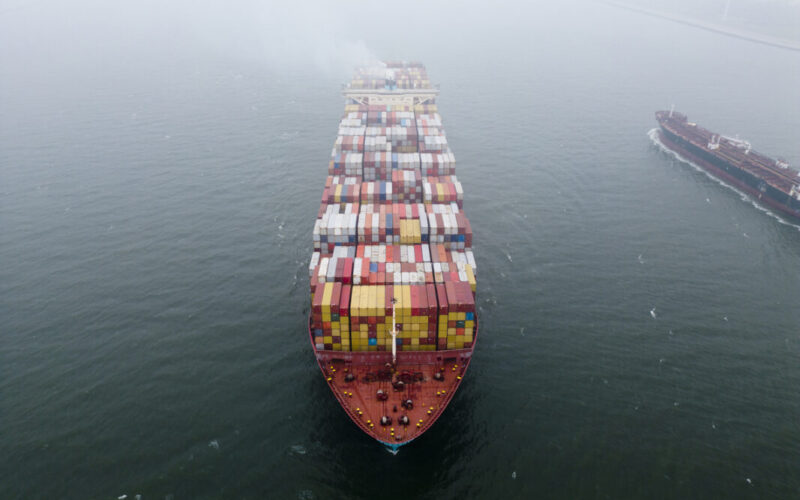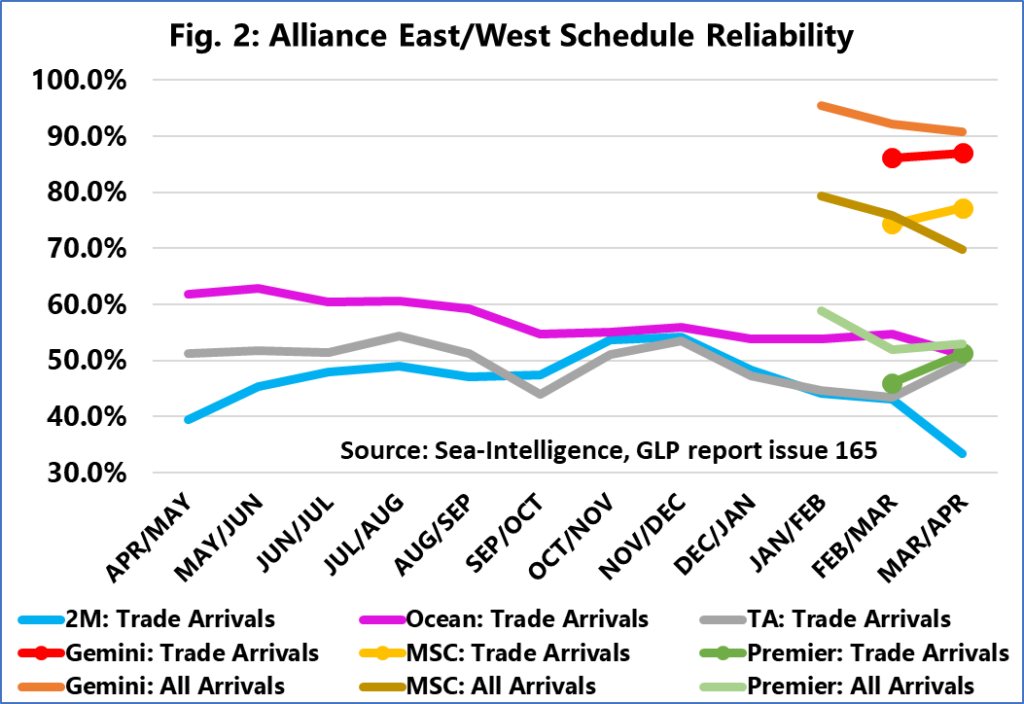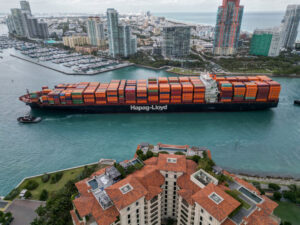Global schedule reliability rose 1.7 percentage points month-over-month (MoM) to 58.7 per cent — the highest level since November 2023.
Year-over-year (YoY), this marks a 6.5 point improvement.
Sea-Intelligence has released issue 165 of its Global Liner Performance (GLP) report, covering schedule reliability through April 2025.
The full 120-page report analyses 34 trade lanes and over 60 carriers; this summary highlights key findings.
Among the top 13 carriers, Maersk led with 73.4 per cent reliability, followed by Hapag-Lloyd at 72.3 per cent and Mediterranean Shipping Company (MSC) at 60.7 per cent.
READ: Global schedule reliability reaches highest 2024 figure
Alan Murphy, CEO of Sea-Intelligence, said: “According to our standard methodology, alliance scores are based on arrivals in destination regions, but as that metric was not available for the new alliances in February, as the newly launched alliance services only had origin arrivals in February, we introduced a new measure for the new alliances, based on all arrivals, including the origin region calls on alliance services.
“Both of these measures are shown in Figure 1; “All arrivals” includes both origin and destination calls and is comparable to the February 2025 score, and “Trade arrivals”, which is comparable to the “old” alliances and only includes destination calls. When the new alliances are fully rolled out, these two measures will converge.”
READ: Global schedule reliability increases modestly in October
In March – April 2025, Gemini Cooperation led schedule reliability with 90.7 per cent for all arrivals and 87.0 per cent for trade arrivals.
MSC followed with 69.8 per cent and 77.3 per cent, respectively, while Premier Alliance recorded 53.0 per cent for all arrivals and 51.3 per cent for trade arrivals.
Among outgoing alliances — where “all arrivals” equals “trade arrivals”— OCEAN Alliance posted 51.1 per cent, THE Alliance 49.8 per cent, and 2M 33.5 per cent.
However, as the new alliances will not be fully implemented until July 2025, Sea-Intelligence noted that a complete performance evaluation will only be possible after that rollout.









